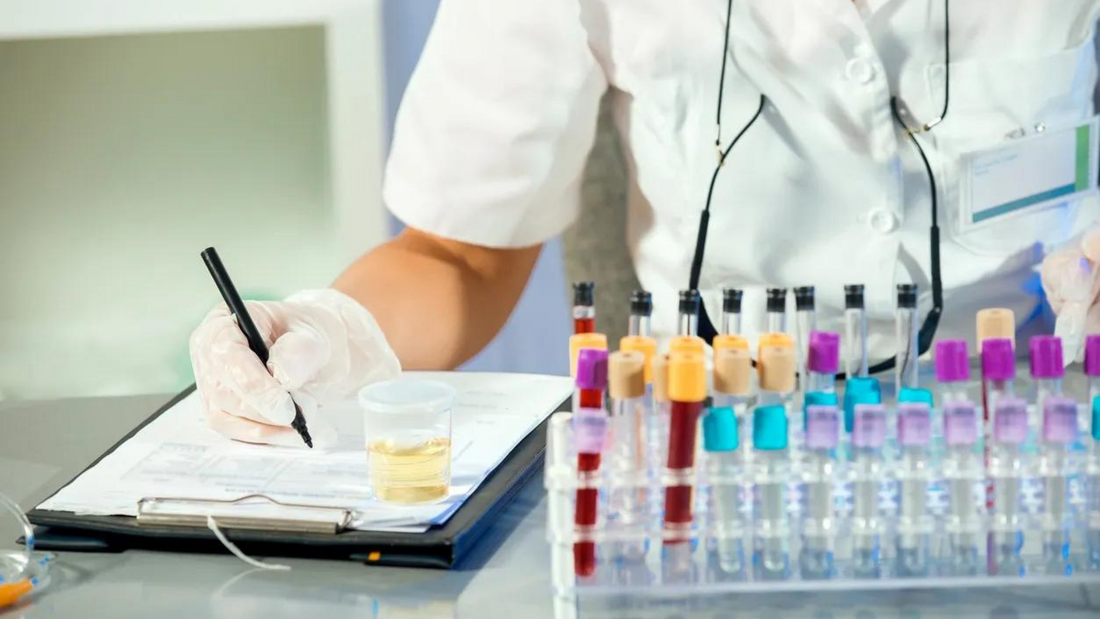by Michael Lorence (https://linktr.ee/melorence1) and Emerson Bossi (bossiwriter.com/)
Testing personal care and cosmetic products is one of the most critical steps to ensure quality and integrity during their development cycle. And it is always recommended that every reputable cosmetic company needs to invest in product testing heavily to satisfy customers and regulations.
Here are a few key product testing steps:
- Formula optimization
- Regulatory screening
- Pilot batching
- Stability testing
- UV Resistance testing
- Antimicrobial testing
- Component compatibility testing
- Consumer testing
Development and scaling of personal care and cosmetic products is a complex and delicate process. Even the tiniest mistakes can lead to catastrophic failures, ruining entire batches. Hence, companies invest in this step to mitigate the risk of development significantly. So let's take an in-depth look at the optimization process of product testing.
How Are Personal Care and Cosmetic Products Tested and Optimized
Testing helps improve any product, but it's not regulated in most cases. So brands employ arbitrary testing routines at their own discretion, which could ultimately lead to a lesser product. On the other hand, products thoroughly tested by trained laboratory professionals have better compatibility, validated shelf life, and are safer to use.
Additionally, laboratories have rigorous standards and processes to test stability, microbial contamination, component compatibility, and more. Proper testing routines produce more stable products that can withstand a greater level of contamination, sunlight exposure and keep their form throughout their entire shelf life.
Formula Optimization
During formula optimization, the product is pushed through the regular development cycle on a series of feedback and actions between the chemist and the visionary to reach a precise result. The goal at this phase is to have the product finalized in terms of aspect, texture, color, smell, and other organoleptic qualities.
Regulatory Screening
The increase in popularity of personal care and cosmetic products made several regulatory bodies around the globe enact stricter regulations, demanding precise percentages, exact chemical values, and raw material quality to pass the bar and be sold in the market. For example, Europe has Regulation (EC) N° 1223/2009 that demands brands to follow specific requirements regarding raw materials, safety, testing, and more before reaching the European market.
Proper material sourcing helps avoid contamination, increases product transparency, and decreases the waste of resources when tracking down suppliers. This optimization is based on either internal or external standards to ensure no detail falls between the cracks and causes chemical mishaps.
Pilot Batch
A pilot batch is essential to understand unexpected formula behavior during production on a large scale. After this point, another round of laboratory testing and approval should occur to ensure massively produced products that still meet the quality standards and adjust if they have deviated from the original vision.
Scaling tests are mandatory to ensure no catastrophic issues happen during the manufacturing process of cosmetic and personal care products. These tests help identify any changes in material or formula behavior. Sometimes, formula composition can't just be multiplied and may require a degree of trial and error to be fine-tuned when scaling batches.
Stability Testing
Temperature variation testing should always be part of the battery of stability testing to ensure it's stable and stays within defined specifications while withstanding a vast range of temperatures and weather conditions.
Documentation for stability testing should detail the standards used in the formula's SDS and determine the specification range attributed to each batch's certificate of analysis. Additionally, the documentation should also include pH, viscosity, density, and specific gravity.
UV Resistance Test
It's important to perform UV testing to understand how the product reacts when exposed to sunlight since they're regularly exposed to it. This test ensures no physical changes take place when the product is exposed to UV radiation.
Antimicrobial Testing
This test measures the product's resistance to external contamination. If the product encounters any contamination during its shelf life, this test ensures it can combat and withstand an amount of contamination before being negatively affected.
Laboratories ensure the formula itself is thoroughly tested using an antimicrobial effectiveness test. All materials get screened for gram-positive bacteria, gram-negative bacteria, mold, and yeast.
Component Compatibility Testing
Component compatibility testing consists of interactions like weight loss, mechanical shock, dispensing consistency, and leaking. It helps determine how each material's exact interactions and environments will affect its performance and stability. This compatibility data can make buying the right material considerably easier, especially when formulating new products.
Consumer Testing
Having consumers test your products before a public release allows companies to learn vital information by identifying product intolerance, uncovering side effects, and exposing allergic reactions.
Having space for consumer study in the scope of your project can significantly reduce the risks associated with product launches and avoid adverse reactions from your customer base. In addition, customer testing helps with packing and labeling issues, feedback on poor package design, drop testing, and inefficient bottle design leading to product waste. Catching these issues early in development improves product safety, handling, and acceptability.
Conclusion
Product testing is vital when developing any personal care or cosmetic product. It mitigates many huge risks brand owners must take when developing and releasing these delicate products. Your product must be as safe and stable as possible before getting it to your customer, and ensuring that formula optimization is made in a laboratory is key.
A carefully optimized formula helps the product fit your company's marketing plan while adhering to any regulation needs. Moreover, a well-built and thoroughly tested formula protects against microorganism growth, ensuring your product keeps its intended form through its entire intended shelf life, leading to a higher customer acceptance.
So take your personal care and cosmetic products to the next level with thorough testing and complete documentation by contacting Flex Cosmetics.

